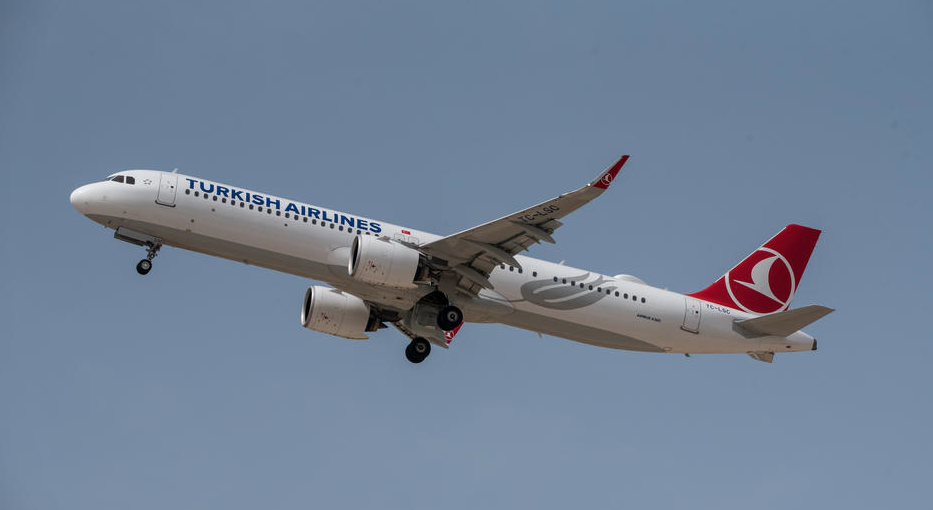Hundreds of shops and businesses across Saudi Arabia have recently put up signs stating they do not carry Turkish goods, and many merchants have reduced to zero the import of goods from Turkey, and even the Turkish coffee merchants have given up on its import.
The Spanish “Mango” brand is looking for alternative suppliers to replace goods produced in Turkey and exported to Saudi Arabia, and they claim that Saudi Arabia “banned all imports and Turkish products”.
The Spanish company told the media that they are “examining alternatives to products from Turkey to Saudi Arabia.”
On Saturday, eight prominent Turkish trade unions issued a letter expressing concern about “Saudi Arabia’s negative attitude towards Turkish companies” and Turkish companies announced earlier that Saudi Arabia was imposing difficulties on exporting Turkish goods to the kingdom, and even preventing the importation of some of the goods or delaying them at the port for a long time before they are released from customs.
Turkish exporters have confirmed that their products have experienced long delays in Saudi customs in the past month.
The Saudi government denies imposing restrictions on Turkish goods. A statement from the Ministry of Communications stated that it is committed to free trade and international agreements and conventions.
However, Ajlan Ajlan, chairman of the Riyadh Chamber of Commerce, recently called for a boycott of “everything that comes from Turkey” in response to “the Turkish government’s hostility towards our leadership, our country and our citizens.”
“Everything that is produced in Turkey or that comes through Turkey is banned in Saudi Arabia,” said a source in the Gulf who briefed journalists.
The field of tourism is also included in the Saudi boycott measures.
The Saudi signals are clear. The announcement of the economic boycott on Turkey came on the second anniversary of the assassination of Saudi journalist Jamal Khashoggi, who was killed at the Saudi embassy in Istanbul, an event that led to a crisis between the countries and an exchange of accusations.
The head of the Chamber of Commerce wrote on Twitter that “the boycott is on everything that is Turkish, imports, exports, investments or tourism.”
Although the annual volume of trade between Turkey and Saudi Arabia is only $ 5 billion a year, the informal boycott measures on Turkey could hurt the Turkish economy, which has recently experienced major difficulties.
The Turks mainly fear that other Gulf countries will join Saudi Arabia. A Gulf boycott has already led to a significant impact on Qatar, an ally of Turkey and its partner in funding the Muslim Brotherhood.
In 2017, Saudi Arabia led an economic boycott against Qatar as part of diplomatic pressure and the United Arab Emirates joined the Saudi effort. Turkey, for its part, supported Qatar and even deployed forces in Qatar.
Traders in Turkey fear that the Turkish administration’s attitude towards Saudi Arabia will encourage the campaign against their country, and especially in light of the Turkish hostility to the normalization agreements between Israel and the UAE and Bahrain.
Mustafa Gültepe, head of the Association of Apparel Exporters in Istanbul, told the media that all retailers producing in Turkey and exporting to the Gulf state have already been harmed. “We are talking about all the global brands that have stores in Saudi Arabia, that manufacture in Turkey and sell there.”
Turkey is one of the largest textile manufacturers in Europe and the Middle East. In 2017, clothing exports stood at $17.7 billion.
The “Mango” brand, which operates 50 stores in Saudi Arabia, and the Swedish company H&M announced that “it is too early to comment on the recently discovered trade restrictions and their significance.”
The British giant Marks & Spencer and the Spanish Inditex, which operate stores in Saudi Arabia, also declined to comment.
On the other hand, Maersk, the shipping giant, wrote to its Turkish customers last month warning of growing customs problems in Saudi Arabia.
Tensions also affected the airline sector and Turkish Airlines was forced to seek special Saudi approval to reopen its routes to Dubai.
The new conflict in the field of trade indicates a significant escalation in the relations between the rival countries. Relations between Turkey and Saudi Arabia and the United Arab Emirates, which have the largest economies in the Middle East, have become strained as President Recep Tayyip Erdo?an’s boldness vis-à-vis Arab countries has increased, especially in his support for Islamist groups.
There has been an ongoing fierce conflict between the Saudis and the Turks due to the latter’s support of the Muslim Brotherhood and following the struggle for hegemony over the Sunni camp in the Middle East, and this escalated following the murder of Khashoggi.
Saudi Arabia also fears that Turkey is working to establish an alternative Islamic body to the Organization of Islamic Cooperation based in Jeddah.
